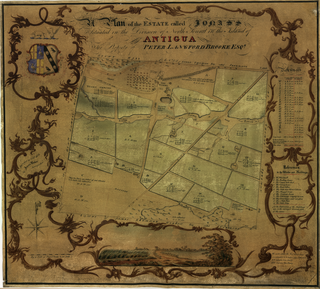| Williams v Bayley | |
|---|---|
| Court | House of Lords |
| Full case name | Henry Williams and Others v James Bayley |
| Citation(s) | (1866) LR 1 HL 20 |
| Keywords | |
| Undue influence | |
Williams v Bayley (1866) LR 1 HL 200 is an English contract law case relating to undue influence.
| Williams v Bayley | |
|---|---|
| Court | House of Lords |
| Full case name | Henry Williams and Others v James Bayley |
| Citation(s) | (1866) LR 1 HL 20 |
| Keywords | |
| Undue influence | |
Williams v Bayley (1866) LR 1 HL 200 is an English contract law case relating to undue influence.
Mr Bayley’s son forged his father’s signature on promissory notes and gave them to Mr Williams. Mr Williams threatened Mr Bayley that he would bring criminal prosecution against his son unless he granted an equitable mortgage to get back the notes.
House of Lords upheld the cancellation of the agreement, on account of undue influence. The agreement was cancelled on the ground that he was influenced by threat.
Meeting of the minds is a phrase in contract law used to describe the intentions of the parties forming the contract. In particular, it refers to the situation where there is a common understanding in the formation of the contract. Formation of a contract is initiated with a proposal or offer. This condition or element is considered a requirement to the formation of a contract in some jurisdictions.

Unconscionability is a doctrine in contract law that describes terms that are so extremely unjust, or overwhelmingly one-sided in favor of the party who has the superior bargaining power, that they are contrary to good conscience. Typically, an unconscionable contract is held to be unenforceable because no reasonable or informed person would otherwise agree to it. The perpetrator of the conduct is not allowed to benefit, because the consideration offered is lacking, or is so obviously inadequate, that to enforce the contract would be unfair to the party seeking to escape the contract.

D & C Builders Ltd v Rees [1965] EWCA Civ 3 is a leading English contract law case on the issue of part payment of debt, estoppel, duress and just accord and satisfaction.
When creating a contract, a negotiator is not only doing so to reach an agreement between two or more parties, but to create an agreement that is durable; whereby parties of the contract are legally bound and committed to its promises. A legally binding contract is defined as an exchange of promises or an agreement between parties that the law will enforce, and there is an underlying presumption for commercial agreements that parties intend to be legally bound.

English contract law is the body of law that regulates legally binding agreements in England and Wales. With its roots in the lex mercatoria and the activism of the judiciary during the industrial revolution, it shares a heritage with countries across the Commonwealth, from membership in the European Union, continuing membership in Unidroit, and to a lesser extent the United States. Any agreement that is enforceable in court is a contract. A contract is a voluntary obligation, contrasting to the duty to not violate others rights in tort or unjust enrichment. English law places a high value on ensuring people have truly consented to the deals that bind them in court, so long as they comply with statutory and human rights.

Lloyds Bank Ltd. v. Bundy[1974] EWCA 8 is a landmark case in English contract law, on undue influence. It is remarkable for the judgment of Lord Denning MR who advanced that English law should adopt the approach developing in some American jurisdictions that all impairments of autonomy could be collected under a single principle of "inequality of bargaining power."
Unconscionability in English law is a field of contract law and the law of trusts, which precludes the enforcement of voluntary obligations unfairly exploiting the unequal power of the consenting parties. "Inequality of bargaining power" is another term used to express essentially the same idea for the same area of law, which can in turn be further broken down into cases on duress, undue influence and exploitation of weakness. In these cases, where someone's consent to a bargain was only procured through duress, out of undue influence or under severe external pressure that another person exploited, courts have felt it was unconscionable to enforce agreements. Any transfers of goods or money may be claimed back in restitution on the basis of unjust enrichment subject to certain defences.

Vernon v Bethell (1762) 28 ER 838 is an English property law case, where it was affirmed that there could be no clog on the equity of redemption. In justifying this rule, Lord Henley LC made the famous observation that,
necessitous men are not, truly speaking, free men, but, to answer a present exigency, will submit to any terms that the crafty may impose upon them.
Barton v Armstrong is a Privy Council decision heard on appeal from the Court of Appeal of New South Wales, relating to duress and pertinent to case law under Australian and English contract law.

Royal Bank of Scotland plc v Etridge [2001] UKHL 44 is a leading case relevant for English land law and English contract law on the circumstances under which actual and presumed undue influence can be argued to vitiate consent to a contract.
Bank of Credit and Commerce International S.A. v. Aboody [1992] 4 All ER 955 is an English contract law case relating to undue influence.

Barclays Bank plc v O’Brien[1993] UKHL 6 is an English contract law case relating to undue influence. It set out the basic categories of undue influence as,

Tate v Williamson (1886) LR 2 Ch App 55 is an English contract law case relating to undue influence.

Alec Lobb (Garages) Ltd. v. Total Oil (GB) Ltd.[1984] EWCA Civ 2 is an English contract law case relating to undue influence.

"R" v Attorney General for England and Wales [2003] UKPC 22 is a New Zealand contract law case, heard by the Privy Council acting as the final court of appeal of New Zealand and not as part of the judiciary of the UK, relating to duress and undue influence.
Midland Bank plc v Cooke [1995] is an English land law case, concerning constructive trusts; and at first instance proven undue influence in law as to a secured business loan and later refinance.

National Westminster Bank plc v Morgan[1985] UKHL 2 is a judicial decision of the House of Lords relating to English contract law and the doctrine of undue influence. The case is most well known for the comments of Lord Scarman about the supposed requirement of "manifest disadvantage" to set aside a contract for undue influence.
Undue influence in English law is a field of contract law and property law whereby a transaction may be set aside if it was procured by the influence exerted by one person on another, such that the transaction cannot "fairly be treated the expression of [that person's] free will".

CIBC Mortgages plc v Pitt[1993] UKHL 7 is a decision of the House of Lords relating to undue influence. The decision confirmed that a person did not need to suffer "manifest disadvantage" under a transaction in order to challenge it for actual undue influence.
Pakistan International Airlines Corp v Times Travel (UK) Ltd [2021] UKSC 40 is an English contract law case, concerning economic duress.